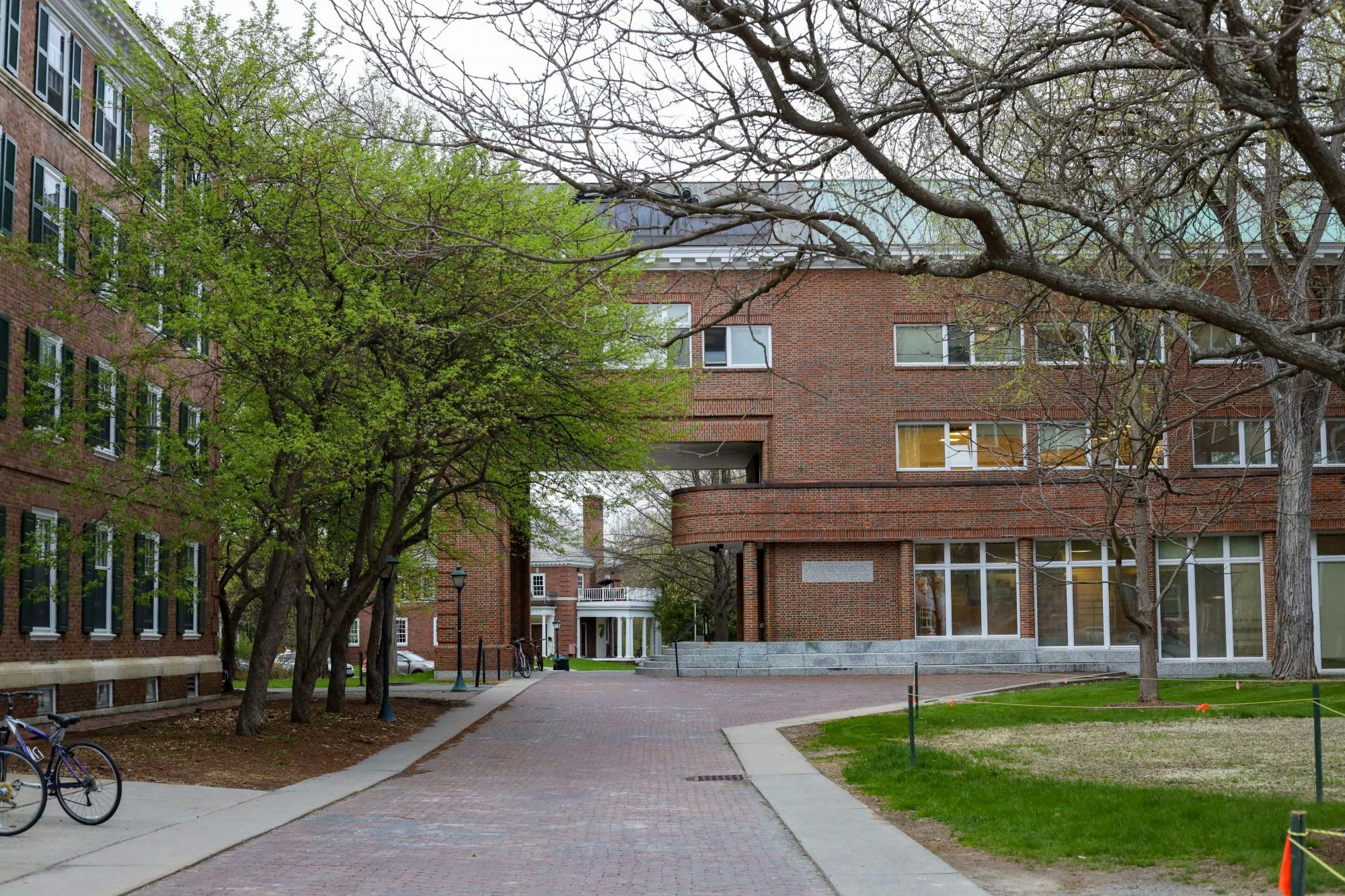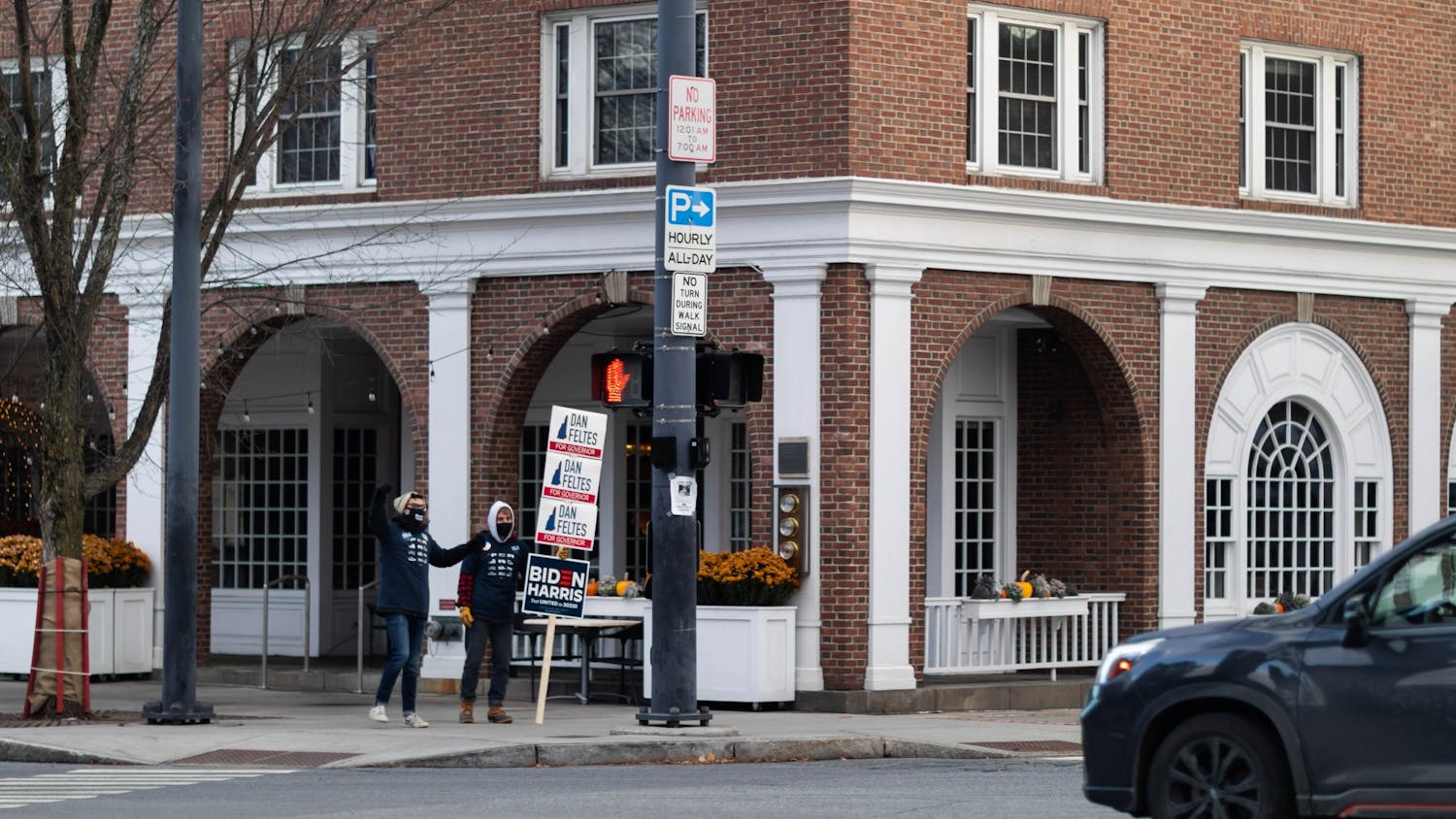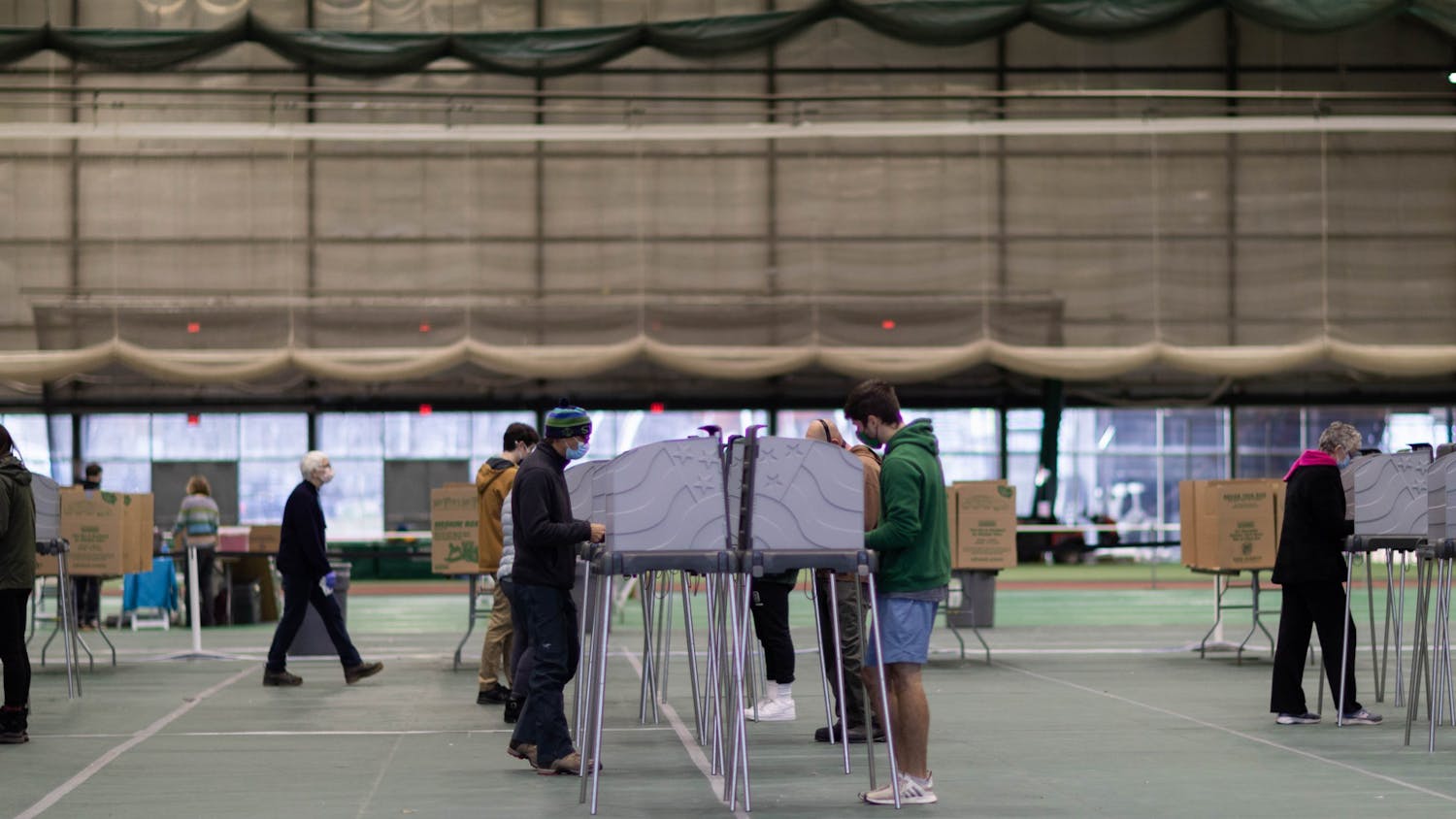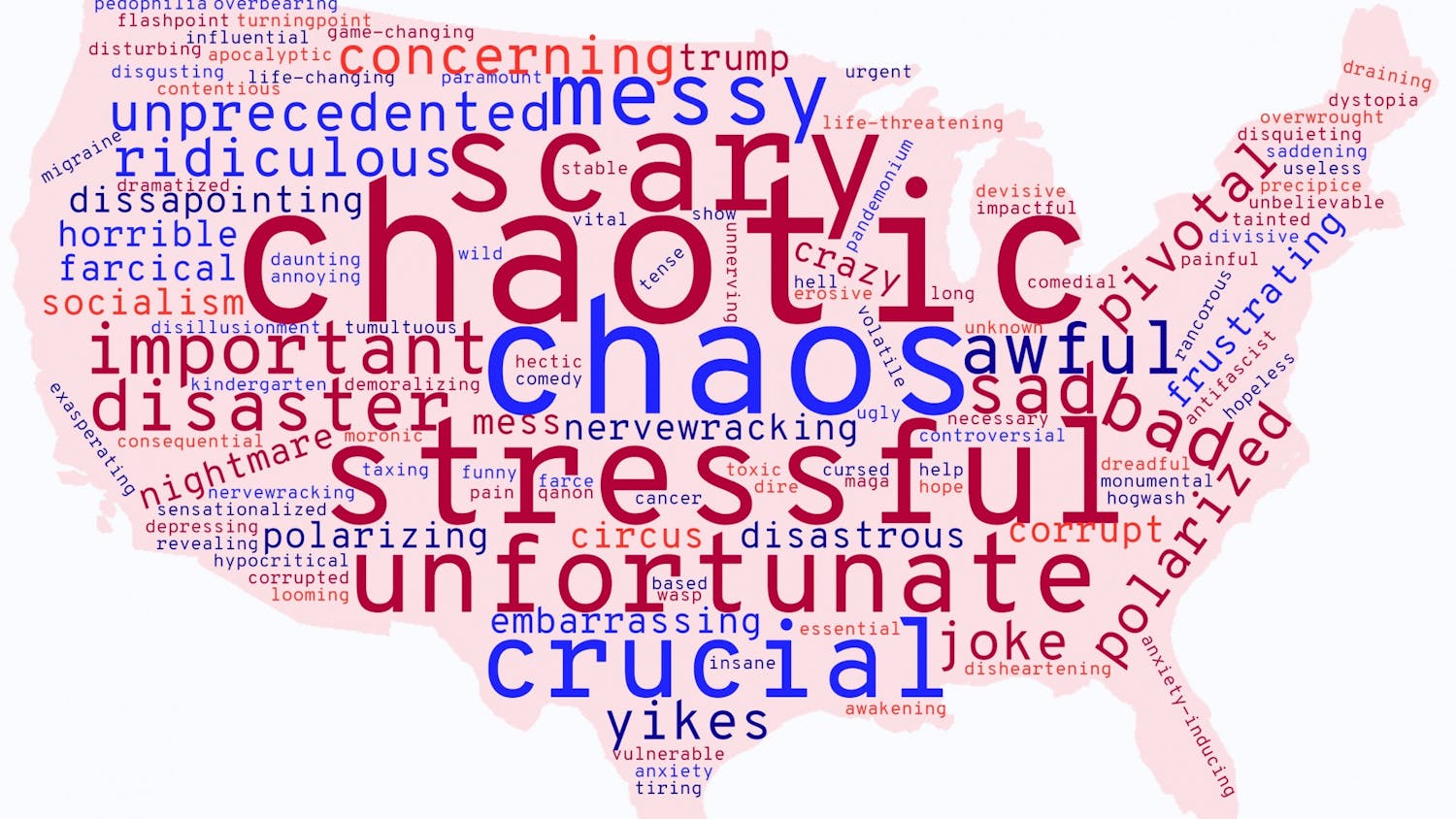On Thursday, government professor Mia Costa moderated a panel of scholars discussing the presidential election, with a dual focus on analyzing what happened and predicting what might come next.
The virtual panel — “What Now? Presidential Post-Election Analysis” — included University of Texas at El Paso professor Carlos Algara, Georgetown University professor Jamil Scott and Brandeis University professor Amber Spry. Costa said she selected the three professors because each had a distinct scholarly focus — Algara in the ideological distribution of legislative bodies, Spry in identity and group politics and Scott in polling and candidate emergence, or who runs for office and why.
Costa said that her questions for the panelists changed prior to and throughout the panel due to the uncertain and drawn-out nature of this year’s election. The panelists also took questions from the audience throughout the hour.
“Five minutes before the event, I’m refreshing the electoral map because things are happening,” Costa said.
Panelists began by discussing the ongoing election results, which, according to Algara, increasingly trend in favor of former Vice President Joe Biden, particularly as mail-in ballots continue to be counted. However, Algara added, a “repudiation of Trumpism” — the sound defeat of the president expected by many on Tuesday night — did not play out as expected.
“Donald Trump has inevitably made gains in certain parts of the country — watching on Tuesday, one of the first indications of that was his margin out of Miami-Dade County in Florida,” Algara said. In 2016, Hillary Clinton won the county handily by 29%, while this election saw Trump narrow the margin of loss to just 7%.
Algara added that both House and Senate races showed a far less robust Democratic breakthrough than was predicted by pollsters previous to the election. While the presidential election shows close margins and sharp division, Algara said Biden is still likely to win the popular vote by a generous amount.
Scott said that similar to 2016, polling once again broadly underestimated support for Trump because of what she described as pollsters’ monolithic categorization of voting groups.
“Moving forward, we need to be careful about how we're aggregating groups, particularly when we're talking about Latinos,” Scott said. She said that Black voters were another group that was treated too homogeneously prior to the election in terms of their voting behavior.
Scott added that while many view this year’s election cycle as abnormal, the voting and ballot counting processes have actually carried on in a standard manner.
“I don't think the process looks very different from what we've seen before — I think the rhetoric around election misinformation is the scary part,” Scott said.
Responding to demographic patterns in this year’s election, Scott said that generational identity played a role in voting patterns, as more millennials leaned towards the Democratic party. However, she said, young voters were not the powerful and progressive voting bloc many had supposed them to be.
“I think that the clear break that people thought they would see — that young people will be liberal — that's not there, and I think that it's important to to think about,” Scott said.
Spry affirmed Scott’s remarks, adding that the assertion that young voters are reliably liberal is too presumptuous. Political attitudes, she said, are typically formed on a family level. She added that ranked choice voting has become more popular among young voters as they seek alternatives and align with third-party candidates more frequently.
“My sense from looking at public opinion data is that people are less beholden to the two major parties in the U.S. and expressing more dissatisfaction with the system as a whole,” Spry said. “I think it is indicative of the fact that people are seeking alternatives and that we're starting to be more expansive in our imagination of what government can look like.”
On the topic of what institutional changes will be important in the future, Algara said the fact that close institutional outcomes, for example, the Electoral College outcome, do not always align with the preferences of the country as a whole is problematic — a “democratic crisis.”
“The institutional outcomes are becoming a lot more disconnected from the preferences of national voters as a country, so that's very concerning,” Algara said. “The U.S. Senate in the long run is a very big problem — the median Senate seat is about seven or eight points more Republican than the country at large.”
Ben Vagle ’22, who attended the event and serves as a student assistant to public programming at the Rockefeller Center, said that he felt the talk was both timely and informative.
“It was fantastic to have professors from all over the country to hear their perspectives on the election,” Vagle said. “It is clearly a momentous political moment, and I feel like I learned a lot.”
Bob Coates, assistant director for co-curricular programs at the Rockefeller Center, said that the center started to reach outside of campus for speakers when designing fall programming. Coates added that because programming is now all conducted through a Zoom webinar format, the Rockefeller Center has been able to reach more Dartmouth alumni.
“When we've done Zoom polls asking people what demographic they are, about 20% of our Rocky watch audience is Dartmouth alums, which is something we couldn't do before,” Coates said. According to Coates, the Rockefeller Center has averaged around 80 to 100 viewers per event.
Coates added that the Rockefeller Center will co-host a Veterans Day event with the Dickey Center for International Understanding on Nov. 11, and the center will conclude its fall term programming on Nov. 11 with a discussion on the national implications of the 2020 election with CNN correspondent Jake Tapper ’91.
Various other organizations will also be hosting post-election events this week. The Office of Pluralism and Leadership and the Native American Program will host a virtual session for post-election relief, conversation and resource sharing on Friday from 3:30 p.m. to 5 p.m.





